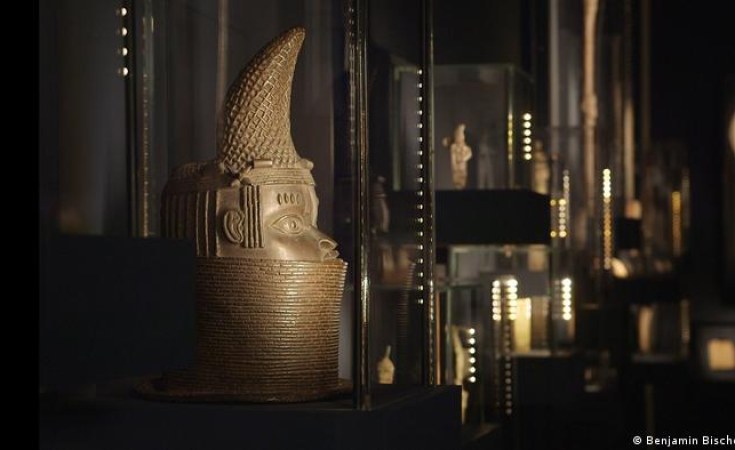The Benin Bronzes have long been the centre of restitution debates.
A US court has dismissed a case challenging the repatriation of 29 Benin Bronzes to Nigeria.
A court order signed by a US district judge, Christopher Cooper, and obtained by PREMIUM TIMES on Wednesday offered more insight.
The Benin Bronzes have long been the centre of restitution debates.
The Benin Bronze comprises artefacts and artworks plundered during the British raid on the Kingdom of Benin in 1897.
The royal palace was burned and looted during the raid, and the Oba went into exile. At the same time, an estimated 3,000 Benin Bronzes eventually made their way into museums and private collections worldwide.
Over the past few years, the Nigerian government has engaged their foreign counterparts in returning cultural artefacts, most of which they stole during the colonial era.
About five countries - The Netherlands, Mexico, Scotland, The UK, and Germany - have returned or agreed to return the artworks domiciled in their country.
The repatriation is part of a worldwide movement by cultural institutions to return artefacts stolen during colonial wars.
Anti-repatriation case
In October 2022, the Smithsonian Institution, an American museum, one of the world's largest museums and cultural organisations, in the custody of 39 Benin Bronzes, was set to return 29 pieces of the renowned artefacts to Nigeria.
Ten items were to remain on long-term loan at the Smithsonian Museum.
On its website, the latter claims the Benin bronzes entered its collection through purchase, transfer, donation and bequest.
"We transferred twenty pieces from the Smithsonian's Hirshhorn Museum and Sculpture Garden. The donor, Joseph H. Hirshhorn, had acquired the works through private dealers and auctions," it stated.
However, this decision was rejected.
A New York-based African American organisation, Restitution Study Group (RSG), filed a lawsuit against the Smithsonian Institute in Washington, D.C., to stop the return of the museum's 29 Benin bronzes to Nigeria.
The group argues that returning the bronzes denies the descendants of enslaved people in America the chance to experience their heritage.
Also, the Restitution Study Group (RSG) alleged that transferring 29 of the 39 Benin Bronzes in the Smithsonian's collection would exceed its authority, breach the Smithsonian's trust relationships with the people of the United States and US citizens of West African descent, and unjustly enrich the receiving museum.
Court's Decision
On 14 October 2022, the US District Court of Columbia denied a restraining order requested by RSG, stating that the plaintiffs were unlikely to succeed in their claims because they lacked legal standing.
The court also noted that the RSG failed to assert any valid cause of action and had not alleged that irreparable harm would occur if the Bronzes were transferred to Nigeria.
The court also added that the plaintiffs' claims are 'moot' because the title to the bronzes has already been transferred to Nigeria since 17 October 2022.
Meanwhile, some of the bronzes have been returned to Nigeria, including most recently ones that previously belonged to London's Horniman Museum and Gardens and Glasgow in Scotland.


